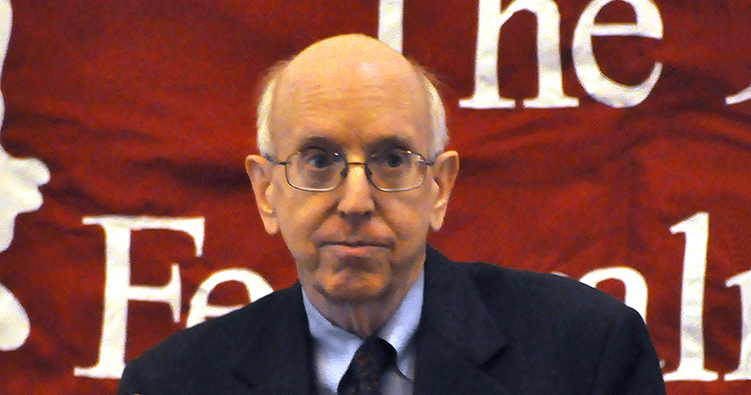Citing Posner opinion, 7th Circuit grants new trial because of Posner comments

Richard Posner. Photo by chensiyuan, via Wikimedia Commons.
A criminal defendant accused of receiving $600,000 in fraudulent tax refunds is entitled to a new trial because of statements by Judge Richard Posner when he was acting as the trial judge, a federal appeals court has ruled in a decision that cites a 1996 Posner decision.
The Chicago-based 7th U.S. Circuit Court of Appeals granted a new trial to Hakeem El-Bey because of Posner’s comments while sitting by designation as a trial judge, according to the Oct. 24 opinion. Above the Law notes the ruling, while How Appealing links to the per curiam opinion.
“Although the district court was understandably frustrated by a difficult litigant, El-Bey had a right to a fair trial, and we cannot be assured that he received one,” the appeals court said. “Statements by the court in the presence of the jury conveyed that El-Bey was guilty or dishonest and impaired El-Bey’s credibility in the eyes of the jury.”
El-Bey had represented himself at trial, though a standby counsel was present. Posner was a judge on the 7th Circuit at the time. He resigned from the appeals court in September in a dispute about the court’s treatment of pro se litigants.
The appeals court cited a 1996 Posner opinion, Cooper v. Casey, in granting the new trial. Posner wrote in that prior opinion that reversible error occurs “when the judge so impairs the lawyer’s credibility in the eyes of the jury as to deprive the client of a fair trial.”
In El-Bey’s case, the appeals court said, the harm was made worse because the judge’s statements were “aimed directly at the defendant while he was exercising his constitutional right to defend himself.”
During the trial, Posner interjected when El-Bey asked a representative from the Internal Revenue Service whether compliance with federal tax laws is voluntary. Posner had ruled before trial that El-Bey could not introduce evidence about his sovereign citizen beliefs, and had warned the defendant that he could be excluded from court if he didn’t comply.
Here is the problematic exchange cited by the appeals court:
Posner: “Look, paying taxes is not voluntary.”
El-Bey: “That’s what it says here. I’m not saying it.”
Posner: “Come on.”
El-Bey: “Judge, I’m not saying it. “
Posner: “You don’t pay your tax, you go to jail.”
El-Bey: “Judge, I’m just saying what they are saying what they have—”
Posner: “Payment of taxes to the government is not voluntary.”
El-Bey: “OK. Judge, so you brought in from behind the law. “
Posner: “Just—look, I’m going to kick you out if you keep on with this nonsense. You understand that? You can go watch the case from another room.”
El-Bey: “OK. I am through.”
Posner: “Don’t you say that tax payment is voluntary.”
El-Bey: “I just asked a question. I didn’t say it was. It’s on the paper. I didn’t say that, Judge. But I’m done. I’m done.”
The next day Posner told jurors he didn’t want them to “feel any hostility to Mr. El-Bey just because I got annoyed occasionally.” He also said he wasn’t talking about El-Bey when he said that people who don’t pay taxes go to jail because he isn’t charged with tax evasion. Posner then polled jurors, who said they could continue to be unbiased.
The court also found problems with oral jury instructions by Posner, including an instruction in which he sought to explain the IRS was an innocent victim, despite issuing $600,000 in refunds to El-Bey.
If the IRS were better funded and organized, it might not have given the refund, Posner said. And that shouldn’t bear on the defendant’s guilt or innocence, Posner said.
“Because, I mean, there are a great many crimes that would not occur if the victim were more cautious, right?” Posner told jurors. “So if you go to the toughest neighborhood in Chicago and decide to take a stroll at 3 a.m. and you’re attacked by someone, beaten up, you’re a fool for having been there and exposed yourself to this person. But the person who attacked you is guilty of a crime. So you don’t blame the victim for the crime, even if you think the victim was careless.”
The 7th Circuit said the comparison “could be seen as an insinuation to the jury that El-Bey’s actions were as reprehensible as those of a violent and brutal criminal.”



